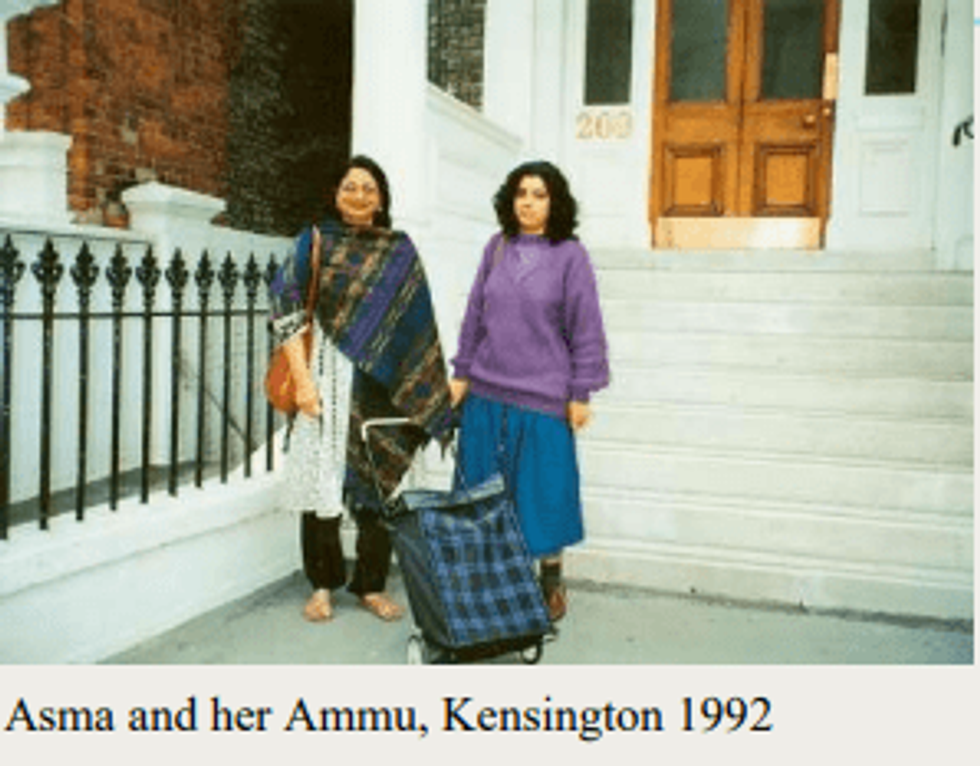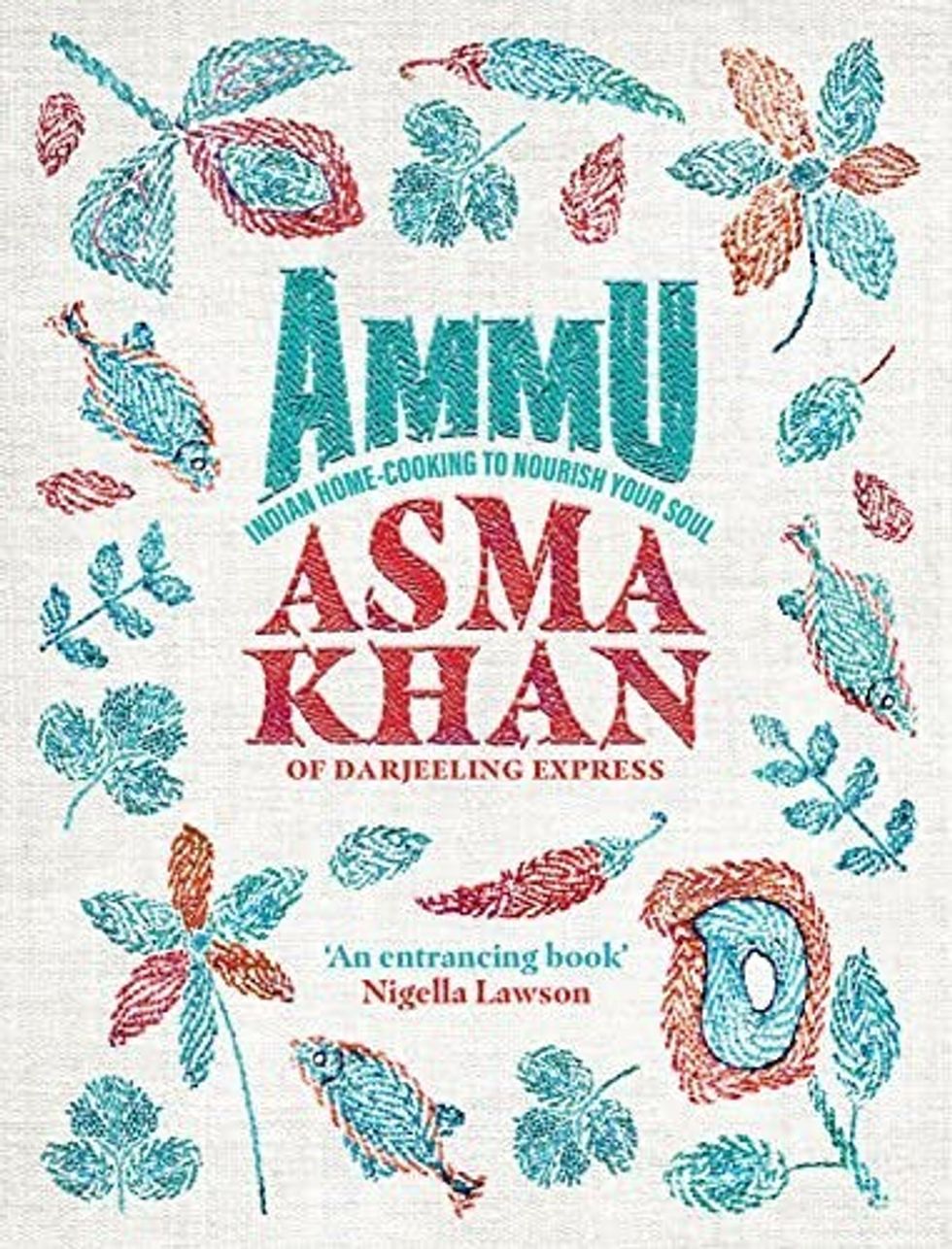ONE OF Britain’s leading restaurateurs (Asma Khan) has urged Asian women to consider a career in the industry, saying that the skills needed in a professional kitchen were “intuitive” to south Asian females.
Asma Khan runs the popular Darjeeling Express in Covent Garden, having moved to the bigger site in the theatre district from nearby Soho in central London just when lockdown was imposed.
In an interview with Eastern Eye last week to promote her new book, Ammu, Khan also cautioned against those who may consider reducing their menu prices because, according to her, that means “you’re devaluing yourself”.
Asian women have all the skills necessary to run a restaurant kitchen, Khan said. “Please do it. You are a brilliant cook. You have the life skills. You’re absolutely the mistress of the kitchen, an expert on spices.
“And the kind of timekeeping you have is what they teach you in culinary school by shouting at you. We know it intuitively. If you are five minutes late with your food (at home), the kids think they’ve been starving for 10 days. They are an ungrateful audience.”
Khan, 52, is among few women who are part of the Asian restaurant scene in Britain. Nisha Katona, a former barrister, recently opened a branch of her Mowgli restaurants in central London.
Most of the popular Indian restaurants across Britain are run by men – among them Shamil Thakrar (Dishoom), Vivek Singh (Cinnamon Club), Atul Kochchar (formerly of Benares) and the Sethi siblings (Gymkhana).
Khan, who moved to the UK after her marriage, studied law, but got into the restaurant business after she began supper clubs that became hugely popular. She was the first British chef on Chef’s Table, a hit Netflix series.
She told Eastern Eye, “Why should women get into (the) restaurants (industry)? Because you are now going to get paid, honoured and respected for something you’ve [always] done. In our culture, women eat last, and girls eat the least. In every home, in India, Pakistan, Bangladesh, Nepal and Sri Lanka, it is a woman who is in charge of the cooking.

“And in every restaurant – whether this in the east or in the west, it is (run by) a man. And there’s no problem with that. I hope the men are very successful.
“But we are the ones who are doing it day in and day out. Yet, we are not considered professional enough.
“I have not done any training. People still ask me, ‘you don’t have a professional kitchen?’ I don’t even know where to start. What is professionalism? It is being able to be perfect at your job. That is for me is a professional. You don’t need to carry a certificate with you.
“What is a certificate worth? It is worth nothing. Your life skills (matter). And the biggest thing is your heart. If you have the heart and the passion, be brave.
“Please, if you are interested in cooking, find routes in which you can be paid for the work you do and do not undercut the prices. If people like your parathas, let them pay what you think it should be worth. Do not undercut your prices – you’re devaluing yourself.”
In her new book, Khan describes how her mother was a pioneer of her time in India. Faizana, whom Khan refers to as Ammu throughout the book, set up a catering company while raising her family in Calcutta (now Kolkata).
Khan, who began writing the book during lockdown as her restaurant was shut, paid tribute to her mother’s leadership and cooking skills.
“I had learned this whole value of equality, respect, of how anyone, irrespective of what background they came from, were equal to you, and that you treated them like your own.
“So much of what she did is even more amazing, more radical than anything I have done, because this was India in the 1970s and 80s. And she did it when no women in my family even went to work. No one went to college, no girl had gone to college.
“Yet my mother had created this business. No one could challenge her because she was so committed, but also respectful around the family. You could not tell her, ‘you shouldn’t be working, coming back at 2am in the morning’.
“She would be in her sari, travelling in a tempo (a small truck). My mother would sit on the dekchis (large cooking pots) because obviously there were no stools, and she would hop off, perfectly at ease in her sari. No one questioned this. You couldn’t throw stones at her. She was very powerful, but in a very humble way. She was kind and respectful. Incredible. I really learned so much from her.”
As Covid restrictions have been lifted, Khan admitted that customers were flocking to her restaurant, but she spoke of fears that the imminent cost of living crisis would be worse than the pandemic lockdowns. The rising fuel costs would have a knock-on effect on prices for customers eating out, she said, as restaurant owners face an increase in VAT and full business rates in a few weeks.
“And we have a labour shortage. Every restaurant is short of staff. It’s a very hard space,” she said.
During the pandemic, Khan was vocal about getting more support for restaurants, frequently appearing on television to make the case for the industry.
She told Eastern Eye, “I wish (chancellor) Rishi Sunak had tried to talk to independent restaurants, as opposed to only high-profile chefs who are on television. Also, (prime minister) Boris Johnson hasn’t made an effort to talk to us.
“We are a very big employer of people, we are a huge contributor to the exchequer through VAT. And the Indian food industry is massive. We didn’t get an opportunity to express our concerns, which is very unfortunate.
“We should learn how we need to maybe unionise or we need to have better spokespeople and not be so fractured into different organisations.
“This is something I’m very committed about, trying to find a route where we can be one strong lobbying voice on behalf of everybody, instead of, you know, taking our flags and saying, ‘I am the Bangladeshi Catering Association. I’m Pakistani and I’m Indian.’ We are all doing the same thing. And we’re all in trouble.”
Khan is known for employing only women in her kitchen but said the pandemic has made life difficult for females.
“It is invariably the mothers who are taking care of kids. (And as restrictions are lifted), it’s as if people are going into the video game Mortal Kombat, or they are going into war themselves – they are taking the tough men, the men are coming back.
“You see this in restaurants as well. Women are not being rehired. And especially mothers are not being rehired. Women are seen as weak and not reliable. Always, every time in war and famine, in any crisis, women pay a very hard price and women of colour, we disproportionately suffer the most.”







 Nirmala Sitharaman speaks at the India-UK Investor Roundtable in London last Wednesday (9). On the panel were India’s department of economic affairs secretary Ajay Seth and Kotak Mahindra Bank founder Uday Kotak
Nirmala Sitharaman speaks at the India-UK Investor Roundtable in London last Wednesday (9). On the panel were India’s department of economic affairs secretary Ajay Seth and Kotak Mahindra Bank founder Uday Kotak Sitharaman with Sir Keir Starmer and Rachel Reeves
Sitharaman with Sir Keir Starmer and Rachel Reeves Sitharaman with Jonathan Reynolds
Sitharaman with Jonathan Reynolds  Sitharaman with Reynolds, Alastair King, India’s high commissioner Vikram Doraiswami and other delegates
Sitharaman with Reynolds, Alastair King, India’s high commissioner Vikram Doraiswami and other delegates












